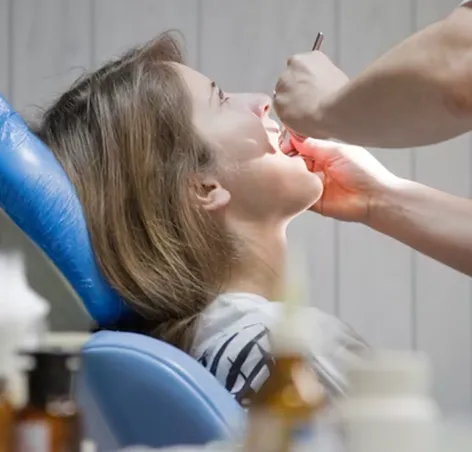What Helps with Tooth Inflammation? Tooth inflammation is a common dental problem that causes pain and discomfort. This condition is often the result of bacterial infections and can be prevented with an effective oral care routine. Home remedies include gargling with salt water and using natural mouthwashes with antibacterial properties. Additionally, consuming antioxidant-rich drinks like green tea can help reduce inflammation.
What Helps with Tooth Inflammation? In treating tooth inflammation, regular brushing and flossing are essential. Proper and frequent use of a toothbrush reduces plaque buildup, decreasing the risk of inflammation. Dentists emphasize the importance of correct oral care techniques, regular check-ups, and professional cleaning when necessary in combating tooth inflammation and gum diseases.

Tooth Inflammation: A Common Oral Health Issue
The question of what helps with tooth inflammation is a common one in oral health. Keeping teeth and gums healthy with the right toothbrush and regular oral care is important. To protect your dental health and prevent inflammation, brush your teeth at least twice a day and use dental floss regularly. Natural methods that can be applied at home can also be effective in alleviating symptoms like bad breath and sensitivity in the gums.
What Helps with Gum Inflammation?
In response to what helps with gum inflammation at home, homemade gargling solutions or natural products like apple cider vinegar can be suggested. Depending on the common causes of gum inflammation, various natural methods can be tried at home. However, if the inflammation progresses, it is important to seek professional treatments recommended by your dentist. Professional dental cleaning is an effective method in reducing inflammation and maintaining dental health and should be done regularly.
The Importance of Regular Oral and Dental Care
Regular oral and dental care plays a significant role in preventing gum inflammation. In response to what helps with observed gum inflammation, dentists usually recommend regular oral hygiene and the use of dental floss. Additionally, certain illnesses can affect gum health, so maintaining your overall health and regular medical check-ups are also important for gum health.
Symptoms of Gum Inflammation and Home Remedies
Symptoms of gum inflammation include redness, swelling, bad breath, and pain while eating. Home remedies include gargling with salt water, drinking herbal teas with natural anti-inflammatory properties, and using natural antibacterial solutions. However, these home treatments are suitable only for mild symptoms, and for serious conditions, you should always seek your dentist’s advice.
Natural Methods for Treating Gum Inflammation
Among the natural methods for treating gum inflammation at home is the use of aloe vera, which has antibacterial properties. When applied to the gums, aloe vera can reduce inflammation and accelerate healing. Also, the regular consumption of antioxidant-rich drinks like green tea can contribute to gum health.

Preventive Approaches to Tooth Inflammation
To prevent tooth inflammation, along with regular brushing and flossing, avoiding sugary and acidic foods is also important. A healthy diet strengthens the gums and prevents tooth decay, thereby reducing the risk of inflammation. Quitting habits like smoking is also crucial for dental and gum health, as smoking increases the risk of gum diseases.
The Importance of Professional Treatment and Dental Visits
In addition to natural methods applied at home, professional treatments recommended by your dentist are effective in treating gum inflammation. Regular dental visits are critical in maintaining dental and gum health and diagnosing any problems at an early stage. Dentists determine the necessary treatment based on the severity of the inflammation, helping patients maintain the best oral health.



